Related Research Articles
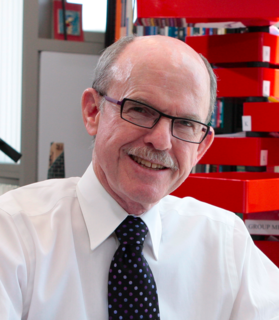
Kendall Newcomb Houk is a Distinguished Research Professor in Organic Chemistry at the University of California, Los Angeles. His research group studies organic, organometallic, and biological reactions using the tools of computational chemistry. This work involves quantum mechanical calculations, often with density functional theory, and molecular dynamics, either quantum dynamics for small systems or force fields such as AMBER, for solution and protein simulations.

Paul Dourish is a computer scientist best known for his work and research at the intersection of computer science and social science. Born in Scotland, he holds the Steckler Endowed Chair of Information and Computer Science at the University of California, Irvine, where he joined the faculty in 2000, and where he directs the Steckler Center for Responsible, Ethical, and Accessible Technology. He is a Fellow of the ACM and the British Computer Society, and is a two-time winner of the ACM CSCW "Lasting Impact" award, in 2016 and 2021.
Richard Allan Shweder is an American cultural anthropologist and a figure in cultural psychology. He is currently Harold H. Swift Distinguished Service Professor of Human Development in the Department of Comparative Human Development at the University of Chicago.
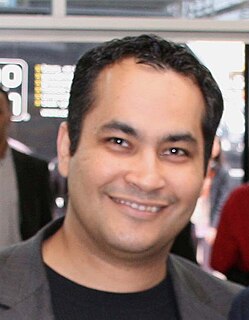
Ali Khademhosseini is the Director and CEO of the Terasaki Institute and former Professor at the University of California-Los Angeles where he held a multi-departmental professorship in Bioengineering, Radiology, Chemical, and Biomolecular Engineering and the Director of Center for Minimally Invasive Therapeutics (C-MIT). From 2005 to 2017, he was a Professor at Harvard Medical School, and the Wyss Institute for Biologically Inspired Engineering. His studies have been cited over 88,000 times. Khademhosseini is best known for developing hydrogels for tissue engineering and bioprinting.
João Guilherme Biehl is a Brazilian anthropologist who is the Susan Dod Brown Professor of Anthropology at Princeton University, where he is also the Co-Director of the Program of Global Health and Health Policy and where he holds an Old Dominion Professorship at the Council of Humanities, as well as being a Visitor at the School of Social Sciences of the Institute for Advanced Study. He specializes in medical anthropology, and his interests include social studies of science and religion, psychological anthropology, globalization and development, global health, ethnographic methods, critical theory, and Brazilian and Latin American societies. He is the winner of the Rudolf Virchow Award given by the Society for Medical Anthropology, the Margaret Mead Award in 2007, the Presidential Distinguished Teaching Award in 2005, and Princeton Universities' Graduate Mentoring Award in 2012.
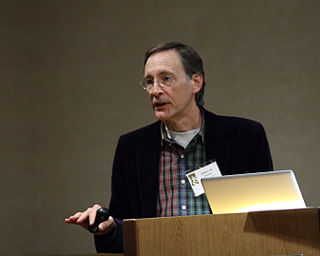
Robert Neel Proctor is an American historian of science and Professor of the History of Science at Stanford University, where he is also Professor by courtesy of Pulmonary Medicine. While a professor of the history of science at Pennsylvania State University in 1999, he became the first historian to testify against the tobacco industry.

Smadar Lavie is a Mizrahi U.S.-Israeli anthropologist, author, and activist. She specializes in the anthropology of Egypt, Israel and Palestine, emphasizing issues of race, gender and religion. Lavie is a Professor Emerita of Anthropology at the University of California, Davis, and a Visiting Scholar at the Department of Ethnic Studies, University of California, Berkeley. Lavie received her doctorate in Anthropology from the University of California at Berkeley (1989) and spent nine years as Assistant and Associate Professor of Anthropology at the University of California, Davis. She authored The Poetics of Military Occupation, receiving the 1990 Honorable Mention of the Victor Turner Award for Ethnographic Writing, and Wrapped in the Flag of Israel: Mizrahi Single Mothers and Bureaucratic Torture receiving the 2015 Honorable Mention of the Association of Middle East Women's Studies Book Award Competition. Wrapped in the Flag of Israel's first edition was also one of the four finalists in the 2015 Clifford Geertz Book Award Competition of the Society for the Anthropology of Religion. She also co-edited Creativity/Anthropology and Displacement, Diaspora, and Geographies of Identity. Lavie won the American Studies Association's 2009 Gloria Anzaldúa Prize for her article, “Staying Put: Crossing the Palestine-Israel Border with Gloria Anzaldúa,” published in Anthropology and Humanism (2011). In 2013, Smadar Lavie won the “Heart at East” Honor Plaque for lifetime service to Mizraḥi communities in Israel-Palestine.

Alondra Nelson is an American writer and academic. An award-winning researcher, she is the Harold F. Linder Chair and Professor in the School of Social Science at the Institute for Advanced Study. She currently serves as Deputy Director for Science and Society in the White House Office of Science and Technology Policy. From 2017-2021, she was president of the Social Science Research Council. She was previously professor of sociology at Columbia University in the City of New York, where she served as the inaugural Dean of Social Science, as well as director of the Institute for Research on Women and Gender. She began her career on the faculty of Yale University.

Suad Joseph received her doctorate in Anthropology from Columbia University in 1975. Dr. Joseph is Professor of Anthropology and Women and Gender Studies at the University of California, Davis and in 2009 was President of the Middle East Studies Association of North America. Her research addresses issues of gender; families, children, and youth; sociology of the family; and selfhood, citizenship, and the state in the Middle East, with a focus on her native Lebanon. Her earlier work focused on the politicization of religion in Lebanon. Joseph is the founder of the Middle East Research Group in Anthropology, the founder and coordinator of the Arab Families Working Group, the founder of the Association for Middle East Women's Studies, the general editor of the Encyclopedia of Women and Islamic Cultures, and the founding director of the Middle East/South Asian Studies Program at the University of California at Davis. She is also the founder and facilitator of a six-university consortium of the American University of Beirut, American University in Cairo, Lebanese American University, University of California at Davis, and Birzeit University Consortium.
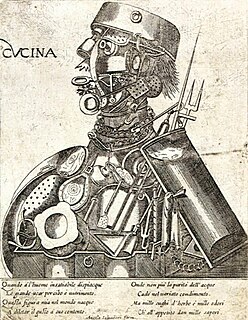
Cyborg anthropology is a discipline that studies the interaction between humanity and technology from an anthropological perspective. The discipline offers novel insights on new technological advances and their effect on culture and society.
Robert Turner Boyd is an American anthropologist. He is professor of the School of Human Evolution and Social Change (SHESC) at Arizona State University (ASU). His research interests include evolutionary psychology and in particular the evolutionary roots of culture. Together with his primatologist wife, Joan B. Silk, he wrote the textbook How Humans Evolved.
Paul S. Knoepfler is an American biologist, writer, and blogger. He is a professor in the Department of Cell Biology and Human Anatomy, the Genome Center, and the Comprehensive Cancer Center at the University of California, Davis School of Medicine. In 2013, Knoepfler was named one of the 50 most influential people in the stem cell field.
Middle Eastern Americans are Americans of Middle Eastern background. According to the United States Census Bureau, the term "Middle Eastern American" applies to anyone of West Asian or North African origin. This includes people whose background is from the various Middle Eastern and West Asian ethnic groups, such as the Kurds and Assyrians, as well as immigrants from modern-day countries of the Arab world, Iran, Israel, Turkey and sometimes Armenia.
Marc Kamionkowski is an American theoretical physicist and currently the William R. Kenan, Jr. Professor of Physics and Astronomy at Johns Hopkins University. His research interests include particle physics, dark matter, inflation, the cosmic microwave background and gravitational waves.
Swapan Kumar Pati is an Indian quantum chemist, a professor of the department of chemistry at the Jawaharlal Nehru Centre for Advanced Scientific Research and the head of the Quantum Theory Molecules to Materials Group at the institute. He is known for his studies on electronic optical and magnetic phenomena in molecular systems and is an elected fellow of the Indian Academy of Sciences, National Academy of Sciences, India and The World Academy of Sciences. The Council of Scientific and Industrial Research, the apex agency of the Government of India for scientific research, awarded him the Shanti Swarup Bhatnagar Prize for Science and Technology, one of the highest Indian science awards, in 2010, for his contributions to chemical sciences.
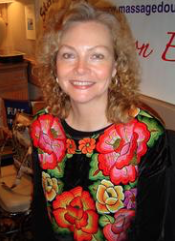
Robbie Davis-Floyd is an American cultural, medical, and reproductive anthropologist, researcher, author, and international speaker primarily known for her research on childbirth, midwifery, and obstetrics. She chose to study women's birth experiences due to her own birth experiences and espouses the viewpoint that midwives play an important role in safeguarding positive outcomes for women giving birth. Beginning in 1983, she has given over 1000 presentations at universities and childbirth, midwifery, and obstetric conferences around the world.
Diana Elizabeth Forsythe was a leading researcher in anthropology and a key figure in the field of science and technology studies. She is recognized for her significant anthropological studies of artificial intelligence and informatics, as well as for her studies on the roles of gender and power in computer engineering.

Kim Fortun, an American anthropologist, is a professor at University of California Irvine's department of anthropology. Her interests extend also to science and technology studies with a focus on environmental risk and disaster. From 2017 to 2019, she has served as the president of the Society for Social Studies of Science (4S).
Lilly Christine Irani is an American academic whose research spans topics in computer science, communication studies, feminist studies, entrepreneurship, and microwork. She is an associate professor in the Department of Communication at the University of California, San Diego.
References
- ↑ "Dumit, Joseph". Library of Congress Name Authority File. Retrieved 2019-03-12.
- 1 2 "Joe Dumit". People in the Social Science Departments at UC Davis. Retrieved 2019-03-12.
- ↑ "Joe". Joseph Dumit Website. Retrieved 2019-03-12.